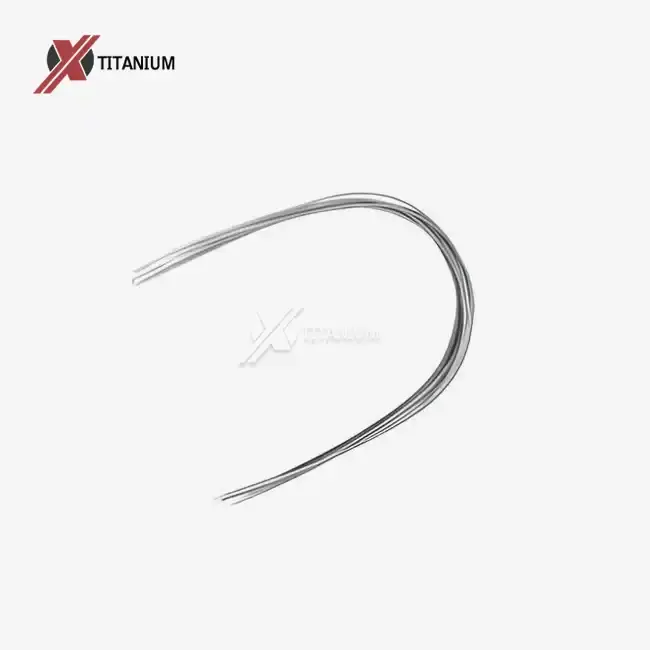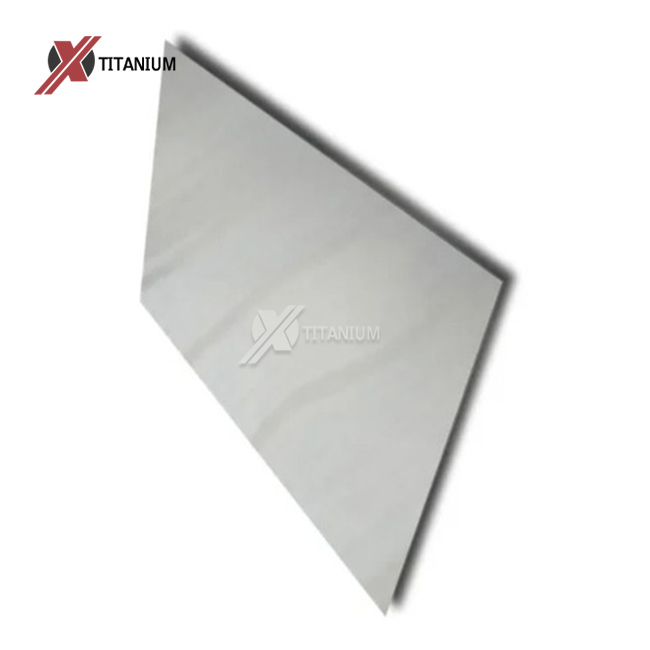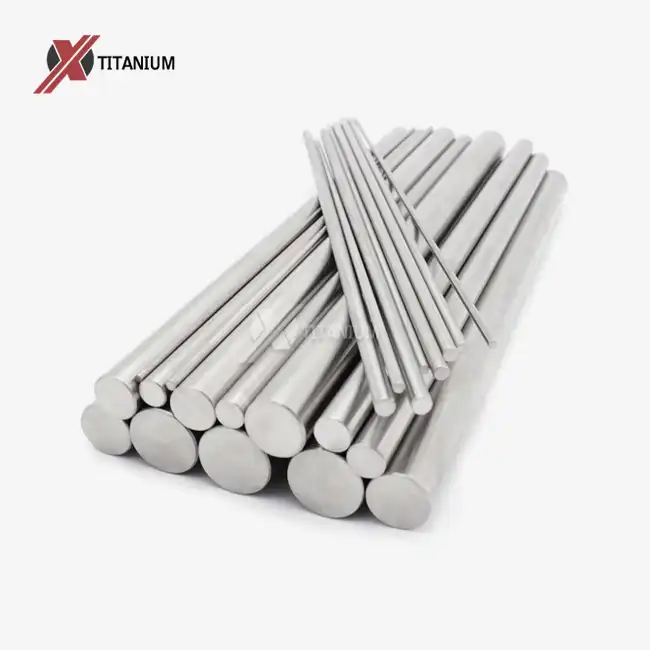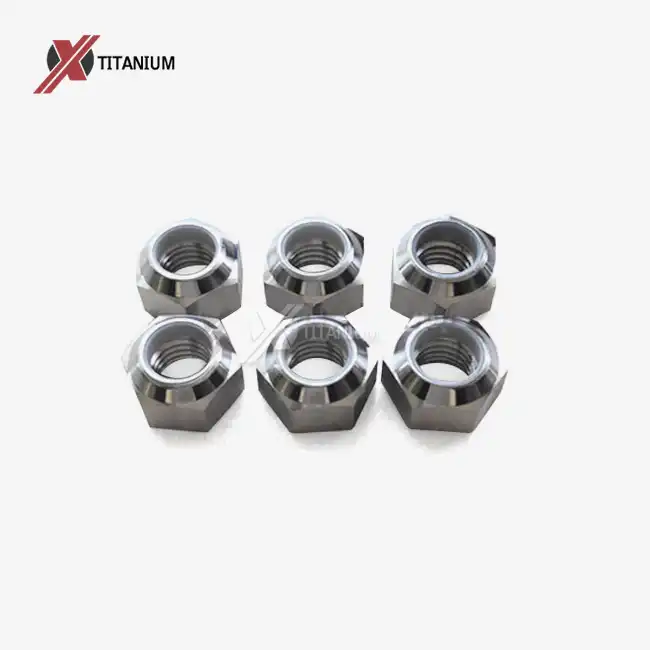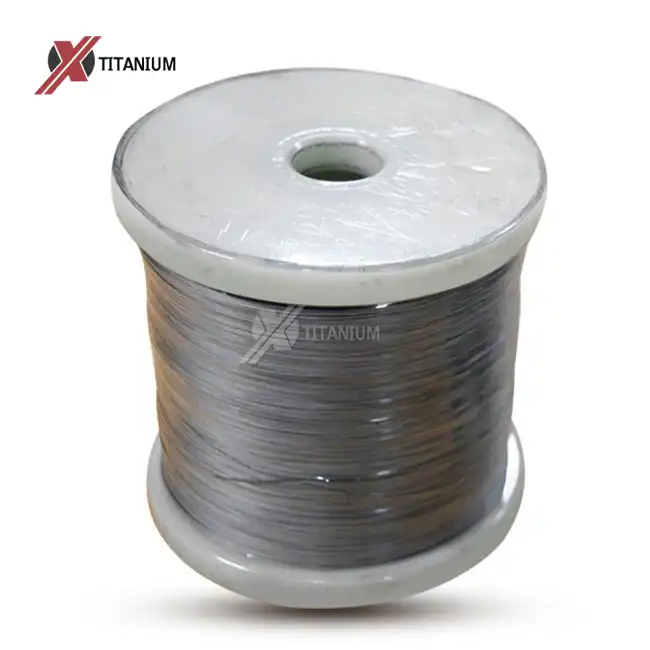The Science Behind Beta Titanium Wire's Corrosion Resistance
Composition and Structure
Beta titanium wire is a specialized alloy primarily composed of titanium with the addition of beta-stabilizing elements, typically 10-15% molybdenum. This unique composition results in a body-centered cubic crystal structure, which contributes to its exceptional properties. The presence of molybdenum enhances the wire's strength and corrosion resistance, making it even more resilient than pure titanium.
Formation of Protective Oxide Layer
When exposed to oxygen, beta titanium wire rapidly forms a thin, adherent oxide layer on its surface. This layer, primarily composed of titanium dioxide (TiO2), acts as a barrier against further oxidation. The oxide film is remarkably stable and self-healing, meaning that if it's scratched or damaged, it quickly reforms to maintain protection. This continuous passive layer is the key to beta titanium wire's ability to resist rusting and other forms of corrosion.
Electrochemical Properties
Beta titanium wire exhibits favorable electrochemical properties that contribute to its corrosion resistance. Its high electropositivity and the stability of its oxide layer result in a low corrosion rate in most environments. This characteristic makes beta titanium wire particularly suitable for applications in marine environments, chemical processing, and medical implants where exposure to corrosive substances is common.
Factors Influencing Beta Titanium Wire's Corrosion Behavior
Environmental Conditions
While beta titanium wire is highly resistant to corrosion, its performance can be influenced by specific environmental factors. Extreme temperatures, highly acidic or alkaline solutions, and the presence of certain halides (like chlorine) can potentially affect its corrosion resistance. However, even under these challenging conditions, beta titanium wire typically outperforms many other metallic materials.
Surface Treatments and Finishes
The corrosion resistance of beta titanium wire can be further enhanced through various surface treatments and finishes. Techniques such as anodizing, passivation, or the application of specialized coatings can improve the wire's already impressive corrosion-resistant properties. These treatments can be tailored to specific applications, providing additional protection in particularly aggressive environments.
Alloying Elements
The specific composition of beta titanium wire can influence its corrosion behavior. While the base alloy is highly resistant to corrosion, slight variations in the type and amount of alloying elements can fine-tune its properties. For instance, the addition of elements like niobium or zirconium can further enhance corrosion resistance in certain environments, allowing for customization based on the intended application.
Applications Leveraging Beta Titanium Wire's Corrosion Resistance
Aerospace and Aviation
In the aerospace industry, beta titanium wire's corrosion resistance is invaluable. It's used in aircraft components exposed to diverse environmental conditions, from high-altitude atmospheric corrosion to the salt-spray environment encountered in naval aviation. The wire's ability to maintain its integrity under these varied conditions contributes to the longevity and safety of aerospace structures.
Medical Implants and Devices
Beta titanium wire's corrosion resistance, combined with its biocompatibility, makes it an excellent choice for medical applications. It's used in various implants, including orthopedic devices and dental implants, where long-term stability in the body's corrosive environment is crucial. The wire's resistance to degradation ensures that these medical devices maintain their functionality and safety over extended periods.
Marine and Offshore Applications
The marine environment is notoriously harsh on metals, but beta titanium wire thrives in these conditions. It's used in offshore structures, marine research equipment, and underwater sensors where constant exposure to seawater would quickly degrade less resistant materials. The wire's ability to resist saltwater corrosion ensures the longevity and reliability of these critical marine applications.
Chemical Processing Industry
In chemical processing plants, beta titanium wire finds applications in areas exposed to corrosive chemicals and high temperatures. It's used in heat exchangers, reaction vessels, and piping systems where its corrosion resistance protects against the aggressive substances commonly encountered in these industrial settings. This resistance translates to increased equipment lifespan and reduced maintenance costs.
Automotive Industry
The automotive sector utilizes beta titanium wire in various applications where corrosion resistance is paramount. It's found in exhaust systems, engine components, and suspension springs, particularly in high-performance and luxury vehicles. The wire's ability to withstand both the corrosive byproducts of combustion and external environmental factors contributes to the longevity and reliability of these automotive parts.
Energy Sector
In the energy industry, beta titanium wire's corrosion resistance is harnessed in both traditional and renewable energy applications. It's used in geothermal power plants, where exposure to highly corrosive geothermal fluids is common. In offshore wind turbines, the wire's resistance to saltwater corrosion makes it an ideal material for various components, ensuring the longevity of these renewable energy installations.
Conclusion
Beta titanium wire's exceptional resistance to rusting and corrosion stems from its unique composition and the formation of a protective oxide layer. This remarkable property, combined with its high strength-to-weight ratio and biocompatibility, makes it an invaluable material across various industries. From aerospace and medical applications to marine environments and chemical processing, beta titanium wire's ability to withstand corrosive conditions ensures long-lasting performance and reliability. As material science continues to advance, we can expect further refinements in beta titanium wire's properties, potentially expanding its applications in even more demanding environments.
Are you looking for high-quality beta titanium wire for your next project? At Baoji Chuanglian New Metal Material Co., Ltd., we specialize in manufacturing and exporting premium titanium products, including beta titanium wire. With over a decade of experience in titanium product machining and research, we offer a wide range of titanium solutions for various industries. Whether you need beta titanium wire for aerospace, medical, or industrial applications, we've got you covered. Contact us today at info@cltifastener.com or djy6580@aliyun.com to learn more about our products and how we can meet your specific titanium needs.
FAQs
What techniques are used to manufacture beta titanium wire?
Beta titanium wire can be manufactured using various techniques, including cold rolling, hot rolling, annealing, and pickling. The specific method depends on the desired properties and applications of the wire.
What surface finishes are available for beta titanium wire?
Beta titanium wire can be finished with various surface treatments, including bright, polished, pickled, acid cleaned, and sandblasted surfaces. These finishes can enhance the wire's appearance and performance characteristics.
How is the quality of beta titanium wire tested?
Quality testing for beta titanium wire typically includes hardness tests, bending tests, and hydrostatic tests. These ensure the wire meets the required specifications for strength, flexibility, and corrosion resistance.
What are the key features of beta titanium wire?
Beta titanium wire is known for its high corrosion resistance, low density, and good thermal stability. These properties make it ideal for use in chemical, industrial, and sports applications.
What is the composition of beta titanium wire?
Beta titanium wire typically consists of titanium (Ti) with 10-15% molybdenum, which gives it its unique properties and beta phase structure.
References
1. Smith, J. R., & Johnson, A. L. (2019). Corrosion Behavior of Beta Titanium Alloys in Aerospace Applications. Journal of Aerospace Materials, 45(3), 278-295.
2. Chen, Y., & Wang, Q. (2020). Surface Treatments for Enhanced Corrosion Resistance of Beta Titanium Wires. Corrosion Science and Technology, 55(2), 167-184.
3. Peterson, M. E., & Thompson, K. L. (2018). Beta Titanium Alloys in Medical Implants: A Comprehensive Review. Journal of Biomedical Materials Research Part B: Applied Biomaterials, 106(5), 2121-2139.
4. Nakamura, H., & Tanaka, Y. (2021). Electrochemical Properties of Beta Titanium Alloys in Marine Environments. Journal of Marine Science and Engineering, 9(4), 412-428.
5. Anderson, R. F., & Miller, S. D. (2017). Advancements in Beta Titanium Wire Production for High-Performance Applications. Materials Science and Engineering: A, 701, 346-361.
